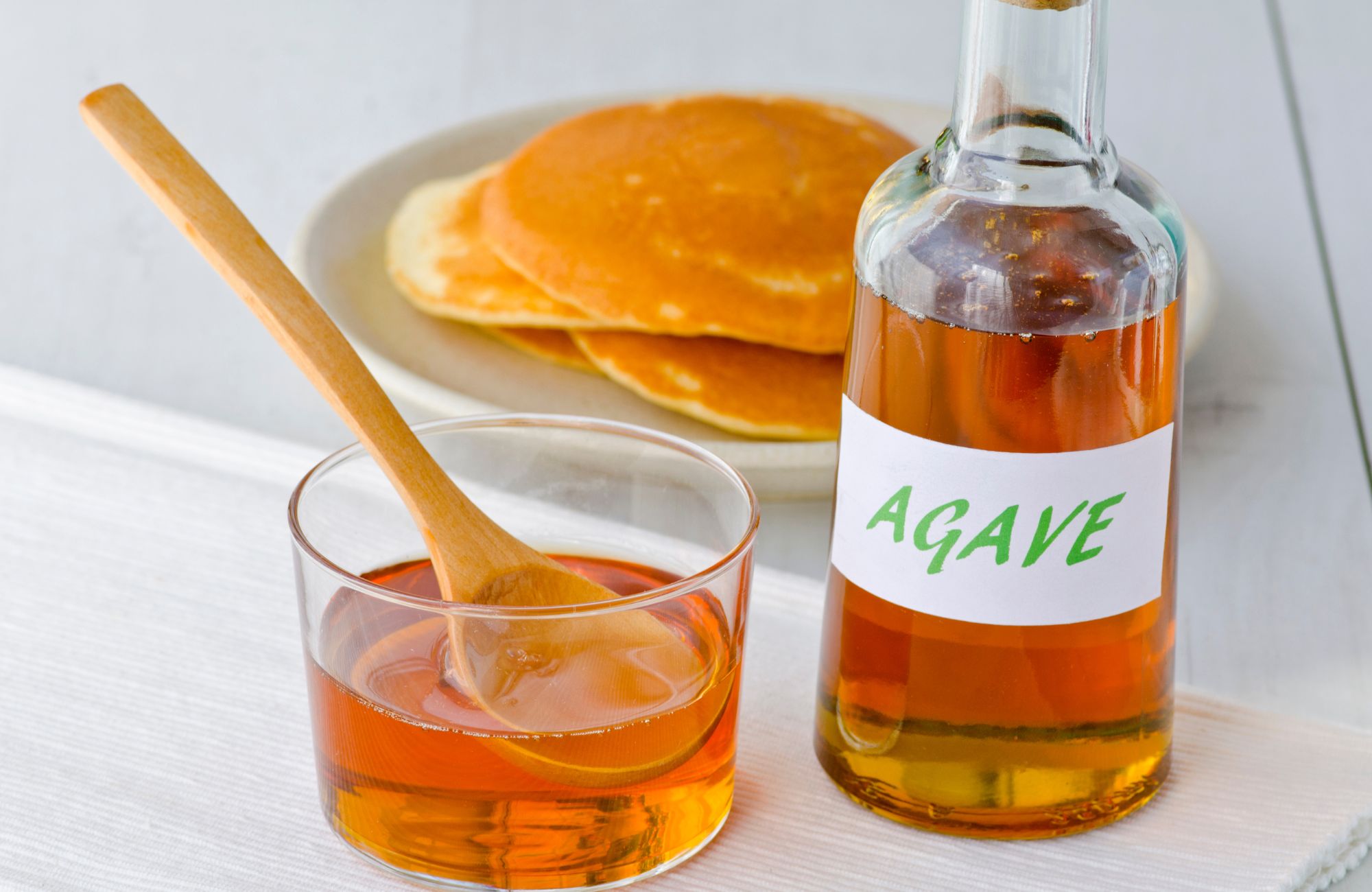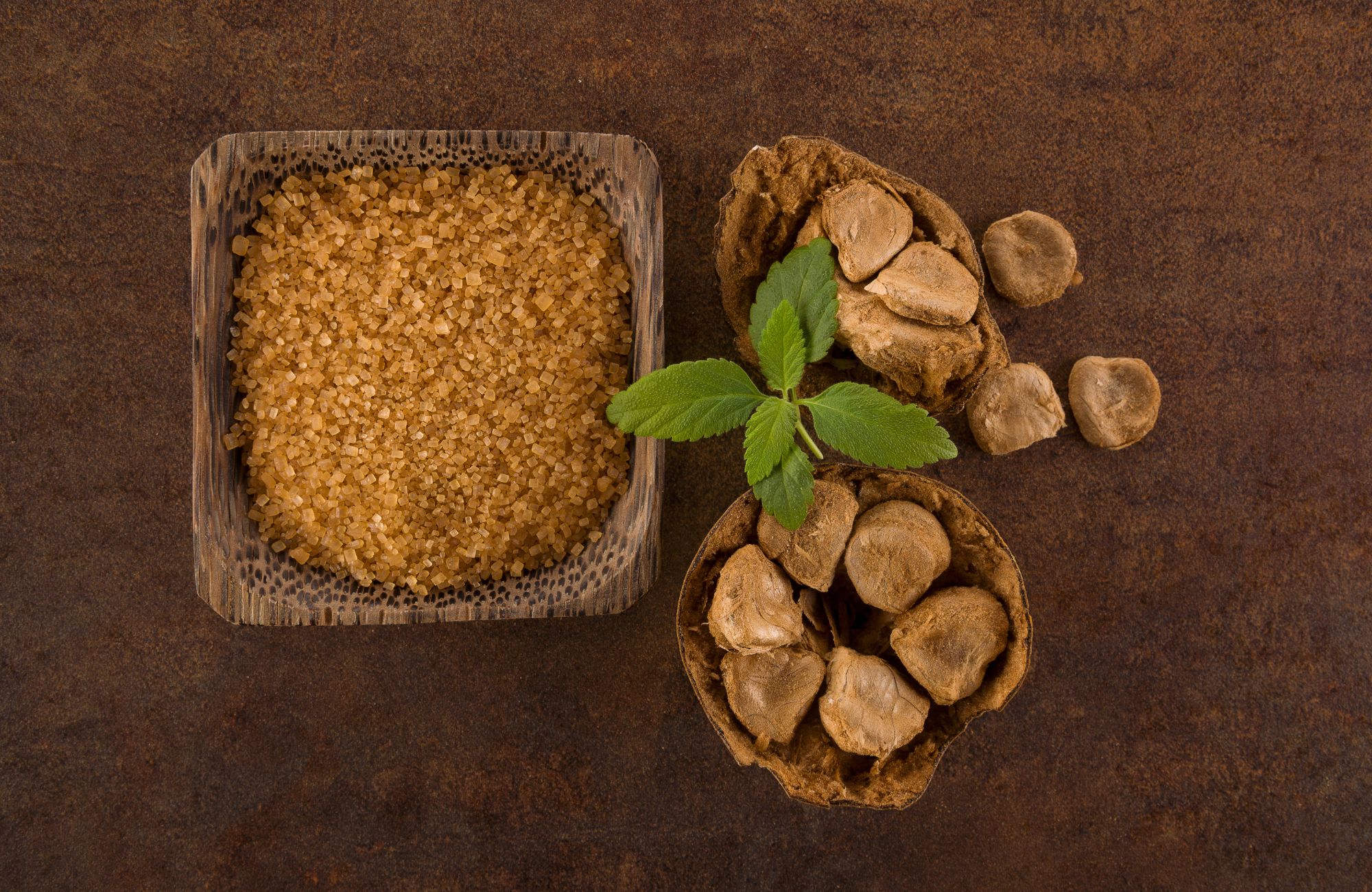
Agave Syrup Substitute: How to Replace Agave with Better Sweetener Choices
What Is Agave Syrup?
Agave syrup, also known as agave nectar, is a natural sweetener derived from the sap of the blue agave plant. It has gained popularity as a healthier alternative to traditional sugars, such as cane sugar and high-fructose corn syrup. Agave syrup is widely used in beverages, baking, and cooking because of its mild taste, which doesn’t overpower other flavors. Additionally, agave nectar pairs well with tequila in cocktails, such as margaritas, enhancing the flavors without overpowering them.
The syrup is extracted from the core of the agave plant, primarily the blue agave species. After harvesting, the sap is heated to convert its carbohydrates into simple sugars, making it sweeter and more viscous. Unlike its cousin, tequila, which is fermented to create alcohol, agave syrup is processed solely to be a sweetener.
Production of Agave Syrup from the Agave Plant
The production of agave syrup begins by harvesting the blue agave plant, which is typically grown in arid regions, particularly in Mexico. Once harvested, the core of the plant, known as the “piña,” is extracted. The piña is then crushed to extract the sap, which is heated and processed to create agave syrup.
The processing of agave syrup typically involves the following steps:
- Harvesting the Agave Plant: The blue agave plant is typically harvested after about 7-10 years of growth.
- Extraction of Sap: The piña is cut and crushed to release the sap.
- Heating: The sap is heated to break down its complex carbohydrates into simple sugars, which results in the syrup’s sweetness.
- Filtration and Bottling: The syrup is filtered to remove any impurities and then bottled for commercial use.
Agave syrup can vary in color, ranging from light to dark, depending on how it is processed. Lighter varieties are typically milder in flavor, while darker varieties have a more robust, caramel-like taste.
Taste Profile of Agave Syrup
Agave syrup is known for its mild, neutral taste, which makes it a versatile choice for various culinary applications. Unlike other sweeteners, such as honey or maple syrup, it has a subtle flavor that won’t overpower dishes or beverages. This quality makes it an excellent option for sweetening a wide range of foods, from smoothies and baked goods to coffee and tea. Its delicate sweetness allows the natural flavors of the other ingredients to shine through, while still providing the right amount of sweetness.
Nutritional Profile of Agave Syrup as a Natural Sweetener
Agave syrup is often promoted as a healthier sweetener because it has a low glycemic index (GI), which measures how quickly a food raises blood sugar levels. With a GI of 15-30, it’s much lower than table sugar (around 60-65) or high-fructose corn syrup (around 55), meaning it causes a slower increase in blood sugar. This makes it attractive to people managing their blood sugar. However, it’s important to remember that agave syrup contains a lot of fructose—about 70-90%, much higher than table sugar or other sweeteners. This high fructose content has raised some health concerns.
Nutritional Profile (Per 1 Tbsp):
- Calories: 60
- Carbs: 16g
- Sugars: 16g (all from fructose)
- Fat: 0g
- Protein: 0g
Health Considerations
Despite its low glycemic index, agave syrup has some health risks due to its high fructose content. Fructose, when consumed in excess, can contribute to various health problems, including:
- Liver Health: Excessive fructose intake has been linked to non-alcoholic fatty liver disease (NAFLD). Fructose is primarily metabolized in the liver, and consuming too much can lead to fat buildup.
- Obesity: High fructose intake has been associated with increased fat accumulation and obesity, as it can contribute to an imbalance in fat metabolism.
- Insulin Resistance: While agave syrup does not cause a rapid rise in blood sugar, it can still contribute to insulin resistance over time due to its fructose content.
Due to these concerns, it’s crucial to use agave syrup in moderation, especially for individuals with liver problems, diabetes, or those trying to manage their weight.
Limitations of Agave Syrup
While agave syrup is a popular natural sweetener, it does come with some limitations. One of the primary concerns is its high fructose content, which can be problematic for individuals sensitive to fructose or those with specific dietary restrictions. High fructose intake has been linked to various health issues, including liver problems and insulin resistance, making it less ideal for those managing their health closely.
Additionally, agave syrup can be quite expensive compared to other sweeteners, and it may not be readily available in all regions. This can make it a less convenient option for some people. Furthermore, not all agave syrups are created equal; some may be highly processed, which can strip away beneficial nutrients and alter the flavor. This processing can also impact the syrup’s overall nutritional profile, making it less appealing to those seeking a more wholesome sweetener.
Why You Might Need an Agave Syrup Substitute
While agave syrup is a popular sweetener, there are several reasons why someone might look for an agave nectar substitute:
- Health Concerns: The high fructose content of agave syrup can be harmful to liver health and may contribute to other metabolic issues, so individuals with these concerns might opt for healthier alternatives.
- Preference for Natural Sweeteners: Some people prefer to use more local or minimally processed sweeteners such as honey, maple syrup, or coconut sugar, which can offer additional nutrients. A common substitute for agave nectar is honey, known for its similar texture, sweetness, and health benefits.
- Environmental Impact: The production of agave syrup has raised concerns about its environmental impact. Agave plants are often grown in regions with limited water resources, and the processing methods may have a larger environmental footprint compared to other sweeteners.
- Cost or Availability: Agave syrup can be expensive, and it may not always be available in certain regions. As a result, people may opt for more accessible alternatives.
- Culinary Needs: Certain recipes may call for the unique texture or flavor profile that agave syrup provides. However, not all dishes benefit from the distinct taste of agave syrup, making it essential to know which substitutes work best. Various substitutes for agave nectar, such as fruit syrup, can be customized to fit different recipes, ensuring optimal taste and texture.
- Dietary Needs and Allergies: Some individuals may have allergies or dietary restrictions that prevent them from using agave syrup, such as those following a vegan or gluten-free diet.
Choosing the Right Alternative
When selecting an alternative to agave syrup, it’s crucial to consider the specific needs of your recipe and the desired flavor profile. Some substitutes may have a stronger taste or a different consistency, which can significantly affect the final outcome of your dish. For instance, while honey and maple syrup offer rich, distinct flavors, they might not be suitable for recipes requiring a more neutral taste.
It’s also important to take into account the nutritional content of the alternative sweetener. Some options, like coconut sugar and date syrup, provide additional nutrients and have a lower glycemic index, making them better choices for those managing blood sugar levels. Additionally, be mindful of any potential allergens or sensitivities. For example, honey is not suitable for vegans, and some people may have allergies to specific plant-based sweeteners.
By carefully considering these factors, you can choose the best agave syrup substitute that meets your dietary needs and enhances your culinary creations.
Best Agave Nectar Substitutes for Agave Syrup
There are several sweeteners that can replace agave syrup in cooking and baking. Here’s a rundown of some of the best agave nectar substitutes:
- Honey -Honey is one of the most popular alternatives to agave syrup. It has a rich, floral flavor and offers a similar consistency to agave syrup. While it has a higher glycemic index than agave syrup, it contains some beneficial nutrients such as antioxidants and enzymes. Honey is also a good source of vitamins and minerals like vitamin C, calcium, and magnesium. However, it should not be used by individuals who are allergic to bee products or who follow a vegan diet. Substitution Ratio: 1:1 for agave syrup.
- Maple Syrup – Maple syrup is another natural sweetener that can replace agave syrup. It has a distinctive caramel-like flavor and is less sweet than agave syrup. Maple syrup contains trace amounts of vitamins and minerals, including manganese, zinc, and calcium. It is also a source of antioxidants, making it a slightly more nutritious option than agave syrup. Substitution Ratio: 1:1 for agave syrup.
- Coconut Sugar – Coconut sugar is made from the sap of coconut trees and has a lower glycemic index than agave syrup. It has a mild caramel flavor and is rich in trace minerals, including potassium, magnesium, and iron. Coconut sugar can be used instead of agave syrup in most baking recipes, although it may not provide the same liquid consistency. Substitution Ratio: 1:1 for agave syrup (add a bit of liquid).
- Date Syrup – Date syrup is made by extracting the juice from dates and boiling it down to create a thick, sweet syrup. It has a rich, fruity flavor and contains nutrients like fiber, potassium, and iron. Date syrup is ideal for those looking for a natural and nutrient-dense alternative to agave syrup. It works well in smoothies, baked goods, and savory dishes. Substitution Ratio: 1:1 for agave syrup.
- Stevia – Stevia is a zero-calorie sweetener derived from the leaves of the stevia plant. It is many times sweeter than sugar, so a small amount is sufficient to replace a larger quantity of agave syrup. While stevia is an excellent option for those seeking to avoid calories and sugar, it has a distinct taste that may not be suitable for every dish. Substitution Ratio: 1 tsp of stevia for 1 cup of agave syrup.
- Brown Sugar – Brown sugar is simply white sugar mixed with molasses, giving it a moist texture and rich flavor. It’s an easy substitute for agave syrup, especially in baked goods. However, it has a higher glycemic index and fewer nutrients than other alternatives, making it less ideal for those managing blood sugar levels. Substitution Ratio: 1:1 for agave syrup (add a bit of liquid).
- Molasses- Molasses is a thick, dark syrup that results from the sugar refinement process. It has a bold, bittersweet flavor perfect for recipes with a deeper, more intense sweetness. It is rich in iron, calcium, and other essential minerals, but it can be too strong for certain dishes. Substitution Ratio: 2/3 cup of molasses for 1 cup of agave syrup.
Substitute Comparison Table
| Substitute | Best For | Key Benefit | Substitution Ratio |
|---|---|---|---|
| Honey | Tea, baked goods, glazes | Nutrient-rich, antioxidant properties | 1:1 |
| Maple Syrup | Pancakes, desserts, drinks | Unique caramel flavor, antioxidants | 1:1 |
| Coconut Sugar | Baking, hot drinks | Low glycemic index, trace minerals | 1:1 (add liquid) |
| Date Syrup | Smoothies, moist desserts | High in fiber, rich flavor | 1:1 |
| Stevia | Beverages, diabetic-friendly | Zero-calorie, very sweet | 1 tsp:1 cup agave |
| Brown Sugar | Baking sauces | convenient | 1:1 (add liquid) |
Popular Alternatives to Agave Syrup
Maple Syrup
Maple syrup, derived from the sap of maple trees, is a beloved alternative to agave syrup. It boasts a rich, distinct flavor and a thick consistency, making it perfect for recipes that require a strong, sweet taste. Maple syrup shines in baked goods, pancakes, and waffles, adding a unique caramel-like sweetness. However, it’s worth noting that maple syrup can be more expensive than agave syrup and has a higher glycemic index, which may not be suitable for everyone.
Brown Rice Syrup
Brown rice syrup is a thick, sweet liquid made from fermented brown rice. It has a mild flavor and a low glycemic index, making it an excellent choice for those with dietary restrictions. This liquid sweetener is ideal for recipes that require a subtle sweetness, such as sauces, marinades, and dressings. However, brown rice syrup can be more expensive than agave syrup and may not be as widely available, which could be a consideration for some users.
Replacing Agave Syrup in Recipes
Replacing agave syrup in recipes can be a straightforward process, but it’s essential to consider the unique characteristics of agave syrup and the recipe’s requirements. Agave syrup is a natural sweetener with a mild flavor, making it an excellent choice for various applications. When substituting agave syrup, choose a sweetener with a similar consistency and sweetness level to ensure the best results.
Tips for Substitution
- Choose a suitable substitute: Select a sweetener that matches the flavor profile and consistency of agave syrup. For example, maple syrup, coconut nectar, or brown rice syrup can be excellent substitutes in many recipes.
- Adjust the ratio: Depending on the substitute’s sweetness level, you may need to adjust the ratio. For instance, if using a sweeter substitute like honey, start with a smaller amount and adjust to taste.
- Consider the flavor profile: Agave syrup has a mild flavor, so if using a stronger-flavored substitute like molasses or date syrup, reduce the amount and adjust to taste.
- Adjust the liquid content: If using a thicker substitute like honey or maple syrup, reduce the liquid content in the recipe to avoid an overly sweet or syrupy consistency.
Common Uses for Agave Syrup
Agave syrup is a versatile sweetener used in various applications, including:
- Baking: Agave syrup is an excellent choice for baked goods, such as cakes, cookies, and muffins, due to its mild flavor and ability to caramelize.
- Beverages: Agave syrup is a popular sweetener for coffee, tea, and cocktails, adding a touch of sweetness without overpowering the other flavors.
- Dressings and marinades: Agave syrup’s mild flavor makes it an excellent choice for salad dressings, marinades, and sauces, adding a touch of sweetness without overpowering the other flavors.
- Desserts: Agave syrup is a great choice for desserts like ice cream, puddings, and custards, providing a smooth, creamy texture and a touch of sweetness.
By following these tips and considering the unique characteristics of agave syrup, you can successfully replace it in recipes and achieve delicious results.
Conclusion
Agave syrup may be a popular choice, but many other natural sweeteners can better suit your needs and preferences. However, there is a need to assess first what agave syrup substitute would be best for you. From honey to maple syrup to stevia, each substitute offers unique benefits in flavor, texture, and health. You can find the perfect agave alternative for your recipes by considering factors like dietary needs and taste profiles.
Ready to find the perfect sweetener for your operation or home kitchen?
Explore our full range of sweeteners and discover the quality, variety, and flexibility you need to create exceptional products. We offer Kosher Certified and Non-GMO options, plus multiple bags and tote sizes—so you can order exactly what fits your needs!
FAQs:
Is agave syrup suitable for vegans?
Yes, agave syrup is considered vegan because it is plant-based, extracted from the blue agave plant, and does not involve any animal products in its production.
What is the best way to store agave syrup?
Agave syrup should be stored in a cool, dry place, away from direct sunlight. It doesn’t require refrigeration and can last for up to two years if properly sealed.
Does agave syrup cause any allergic reactions?
Agave syrup is generally safe for most people and does not commonly cause allergies. However, as with any food product, individuals with specific allergies or sensitivities should always check ingredient labels. If you have a known allergy to the agave plant or other plants in the Asparagaceae family, consult a healthcare provider before use.



Leave a Reply